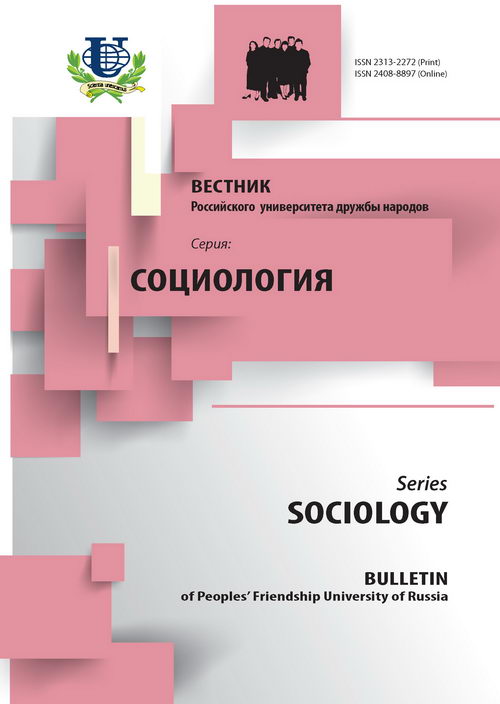Sociological Analysis of Contemporary Youth Movements: the Strenghts of Classical Leadership Theories
- Authors: Andrievskaya NV1
-
Affiliations:
- Peoples' Friendship University of Russia
- Issue: No 1 (2011)
- Pages: 46-54
- Section: Articles
- URL: https://journals.rudn.ru/sociology/article/view/6293
- ID: 6293
Cite item
Full Text
Abstract
The article is devoted to the study of youth socio-political movements in terms of leadership theories. The author examines the development of leadership theories and provides the analysis of the activities of two youth organization's leaders in the context of the theories involved. In order to analyze the efficiency of leadership the author highlights the qualities essential for an ideal leader of a youth organization and identifies the type of leadership style. Further on, the author considers how far each of the candidates answers the ideal leadership model description.
About the authors
N V Andrievskaya
Peoples' Friendship University of Russia
Author for correspondence.
Email: andrievskaia@mail.ru
Кафедра социологии; Российский университет дружбы народов; Peoples' Friendship University of Russia
References
- Veber M. Izbrannye proizvedeniya. - M.: Progress, 1990.
- Veber M. Kharizmaticheskoe gospodstvo // Sotsiologicheskie issledovaniya. - 1988. - № 3.
- Vyatr E. Sotsiologiya politicheskikh otnoshenii. - M., 1979.
- Gofman A.B. Sem' lektsii po istorii sotsiologii. - M., 1999.
- Makiavelli N. Gosudar'. - M.: Planeta, 1990.
- Maslou A.G. Motivatsiya i lichnost' / Per. s angl. - SPb.: Evraziya, 1999.
- Morgunov E.B. Modeli i metody upravleniya personalom. - M.: Intel-Sintez, 2001.
- Ol'shanskii D.V. Osnovy politicheskoi psikhologii. - M., 2001.
- Shpakova R.P. Tipy liderstva v sotsiologii Maksa Vebera // Sotsiologicheskie issledovaniya. - 1988. - № 5.
- Evans M.G. The Effects of Supervisory Behavior on the Path-Goal Relationship // Organizational Behavior and Human Performance. - 1998. - Vol. 5.
- McGregor D. Theory X and Theory Y // Workforce. - 2002. - Vol. 81. -Iss. 1.
Supplementary files













